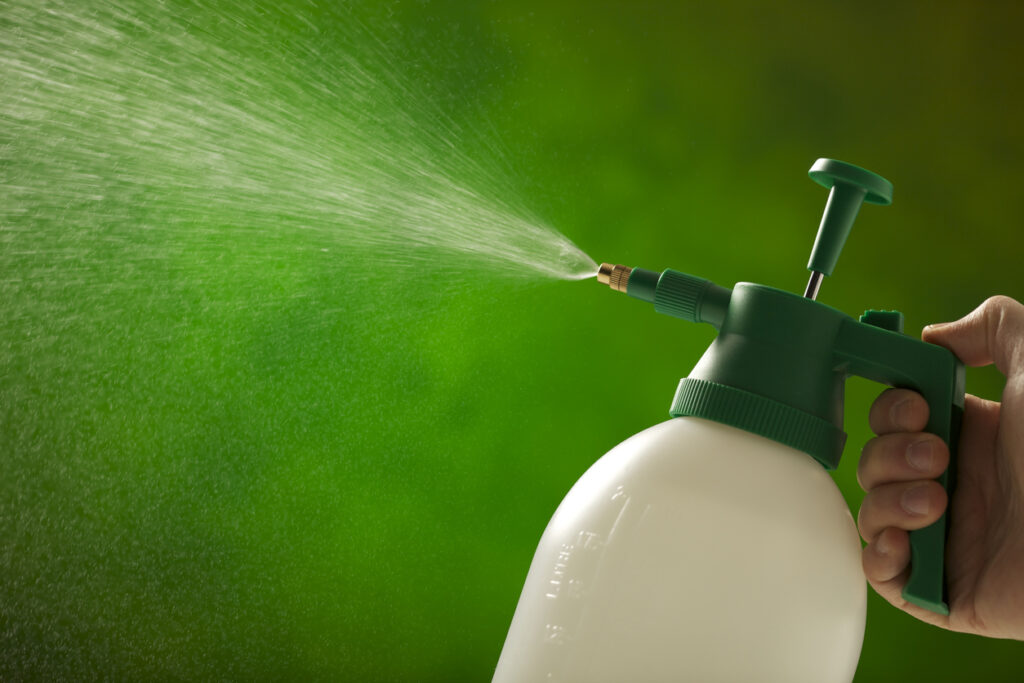Check out what’s
Trending

Holiday Events in Mt. Lebanon
Pesticides control, kill, or mitigate pest organisms. They include, but are not limited to, herbicides, fungicides, insecticides, and rodenticides. Trained and licensed applicators apply control in accordance with safe practices established by the Pennsylvania Department of Agriculture. Mt. Lebanon uses only the safest and most current control products and applies them according to the manufacturer’s label and federal law. When a decision to use a produce is made, we follow Integrated Pest Management (IPM) protocol, a process for achieving long-term environmentally sound pest control. We apply pesticides only after an unacceptable threshold of damage is reached. Chemical control is only one tool we use to reach an acceptable threshold; as part of our effective IPM program, we also use a combination of mechanical, physical and cultural controls.
State Law requires all registered applicators to provide notice to anyone who has been verified by as doctor as hypersensitive and is listed on the Pennsylvania Department of Agriculture’s Pesticide Hypersensitivity List. People on this list may request to have their home, place of employment, school (if a student) and vacation home placed on the registry. The registry is distributed quarterly to all commercial and public pesticide businesses. The business that is applying the pesticide must notify anyone listed on the most recent registry in advance, if they will be applying a pesticide to a structure attached to a listed location or are applying a pesticides above-ground within 500 feet of a listed location. The business may provide notification by speaking to an adult in person, by telephone, via a message left on an answering device, by certified mail, by posting a notice on the front door of the listed location or by speaking to an adult at the alternate phone number listed in the registry. The notification must include the following information: business name, address, telephone number, the pesticide brand name and common name (if available), EPA registration number of the pesticide, the location of the application and the proposed date and time of the application. The proposed application time may not exceed 24 hours.

• Insect control in municipal facilities—Typically applied by a third party through a maintenance agreement
• EAB Treatment—A public works department program that protects and preserves municipal ash trees along the streets and in certain parks
• Wasp Control—Wasp nests are treated and removed from municipal street trees and parks to protect the public.
• Grass and Weed Control—Non-selective (contact or systemic) herbicides are periodically applied to remove unwanted vegetation in areas that are difficult to control mechanically
• Root Control in Sanitary Sewers—Products contractually applied to remove roots from sewers that are chronically blocks by those roots.
• Invasive Species Control—Contractual application of herbicides to remove invasive species from passive parks
• Ant Control—Products applied to treat ant populations in municipal trees, preserving the trees and eliminating potential spread to private property
• Rodent Control—Products occasionally applied to sanitary sewers to control populations of rats
• Mosquito Control—Products applied to stagnant water to reduce the threat of West Nile and other viruses spread by mosquitoes that breed there.
• Weed and Insect Control at Golf Course—Professional products used to control weeds, insects and diseases while managing a high profile sports turf area
• Sanitary Measures at Municipal Pool— Chlorine and other product use to provide a sanitary and safe environment for public use of the swim center
Most control products Mt. Lebanon uses contain the same active ingredients that any homeowner can purchase from most hardware stores and garden centers. An example would be the non-selective herbicide known by the trade name of Round Up, which contains glyphosate as the active ingredient. This product is used by homeowners to control grass and weeds in landscape beds, concrete joints and other similar areas.
General Information
The Pesticide Hypersensitivity Registry consists of a list of individuals who have been verified by a physician to have medical problems associated with exposure to pesticides. These individuals must be notified before you apply general or restricted use pesticides within 500 feet of their listed locations. Additional information concerning the registry can be obtained by contacting the Pennsylvania Department of Agriculture, Bureau of Plant Industry, Division of Health & Safety at (717) 772-5231 or by fax at (717) 783-3275.
Notification Requirements
Notification is required when making pesticide applications within 500 feet of listings in the current registry.
Timing of the notification requirements:
Notification is made when the required information is:
Notification shall consist of providing all of the following information to the individuals on the registry:
Record retention:
Exceptions – the following types of application do not require notification:
Complaints
Most problems can be directed to the Department of Agriculture’s Regional Office at (610) 489-1003.
Main call-in number (717) 772-5231
Extension 2 for Licensing
Extension 3 for Enforcement / Pesticide Complaint
Extension 4 for Product Registration
Check out what’s

Holiday Events in Mt. Lebanon



